In the vast sky, a crow is flying vigorously. Its figure, against the backdrop of the blue sky and white clouds, appears somewhat lonely and lost. During its flight, the crow happened to encounter a pigeon on its way home. The pigeon flapped its wings and glided gracefully. After seeing the crow, it asked curiously, "Where are you flying to?" A trace of loneliness flashed in the crow's eyes. It replied slowly, "Actually, I don't want to leave. But everyone dislikes my cawing, so I want to leave."
After hearing the crow's words, the pigeon pondered for a moment and then told the crow earnestly, "Don't waste your effort! If you don't change your voice, you won't be welcome anywhere you fly." The crow fell into deep thought after hearing the pigeon's advice. It began to think about its own situation and the profound meaning contained in the pigeon's words.
In Taoist thought, it is emphasized to conform to nature and return to simplicity. The crow's cawing is the result of its nature. However, when this nature is not accepted by the surrounding environment, the crow faces a difficult choice. Should it continue to adhere to its nature or try to change itself to adapt to the environment? Taoism believes that everything has its way, and the way is the law of nature. Although the crow's cawing is part of its nature, if this nature conflicts with the surrounding environment, then the crow needs to think about how to make appropriate adjustments while conforming to nature.
The crow's dilemma also reminds us of ourselves. In life, we often encounter various problems and challenges. Sometimes, we find that some of our behaviors, habits, or personality traits are not accepted by others and may even bring troubles to ourselves. Just like the crow's cawing, these problems may be part of our nature. But if we don't change them, they will affect our interpersonal relationships, career development, and inner peace.
Taoist thought tells us to learn to find problems from ourselves instead of constantly complaining about the external environment. If we hope that everything can become better, we must start from changing ourselves. Changing ourselves does not mean denying our nature but constantly improving and enhancing ourselves on the basis of maintaining our true selves. Just like the crow can try to adjust the volume, frequency, or expression of its cawing while maintaining its unique cawing so that it can be more easily accepted by others.
Changing oneself requires courage and determination. For the crow to change its cawing means it has to break through its comfort zone and try new ways and methods. This is undoubtedly a huge challenge for the crow. Similarly, for us humans, changing ourselves is not easy either. We often dare not take the first step of change because we are afraid of failure, worried about losing what we already have, or afraid of facing unknown risks. However, only by bravely facing our own problems and daring to try new things can we continuously grow and progress.
Changing oneself also requires correct methods and attitudes. Taoism emphasizes "governing by doing nothing," which does not mean doing nothing at all but taking appropriate actions in accordance with the laws of nature. In the process of changing ourselves, we cannot blindly follow the trend or pursue superficial changes. Instead, we should deeply understand our own problems and find suitable methods for change. At the same time, we must also maintain a peaceful mindset and not give up the effort of change because of temporary difficulties or setbacks.
The story of the crow and the pigeon also makes us understand that changing ourselves is not only to gain the recognition and welcome of others but also to realize self-worth and inner growth. When we can bravely face our own problems and actively change ourselves, we will find that our lives become more beautiful and our interpersonal relationships will be more harmonious. In the process of change, we will continuously discover our potential and possibilities and achieve self-transcendence.
In real life, we can start changing ourselves in many aspects. For example, we can change our way of thinking and shift from negative thinking to positive thinking; we can change our behavior habits and develop good living and working habits; we can change our communication methods and learn to communicate and cooperate better with others. No matter which aspect we start from to change, we must persevere and continuously reflect on and adjust our behaviors until we achieve our goals.
In conclusion, the story of the crow and the pigeon brings us profound inspiration. If we hope that everything can become better, we must start from changing ourselves. In the process of changing ourselves, we can draw on the wisdom of Taoist thought, conform to the laws of nature, bravely face our own problems, adopt correct methods and attitudes, and continuously improve and enhance ourselves. Only in this way can we go further and fly higher on the road of life and create a more beautiful future.



